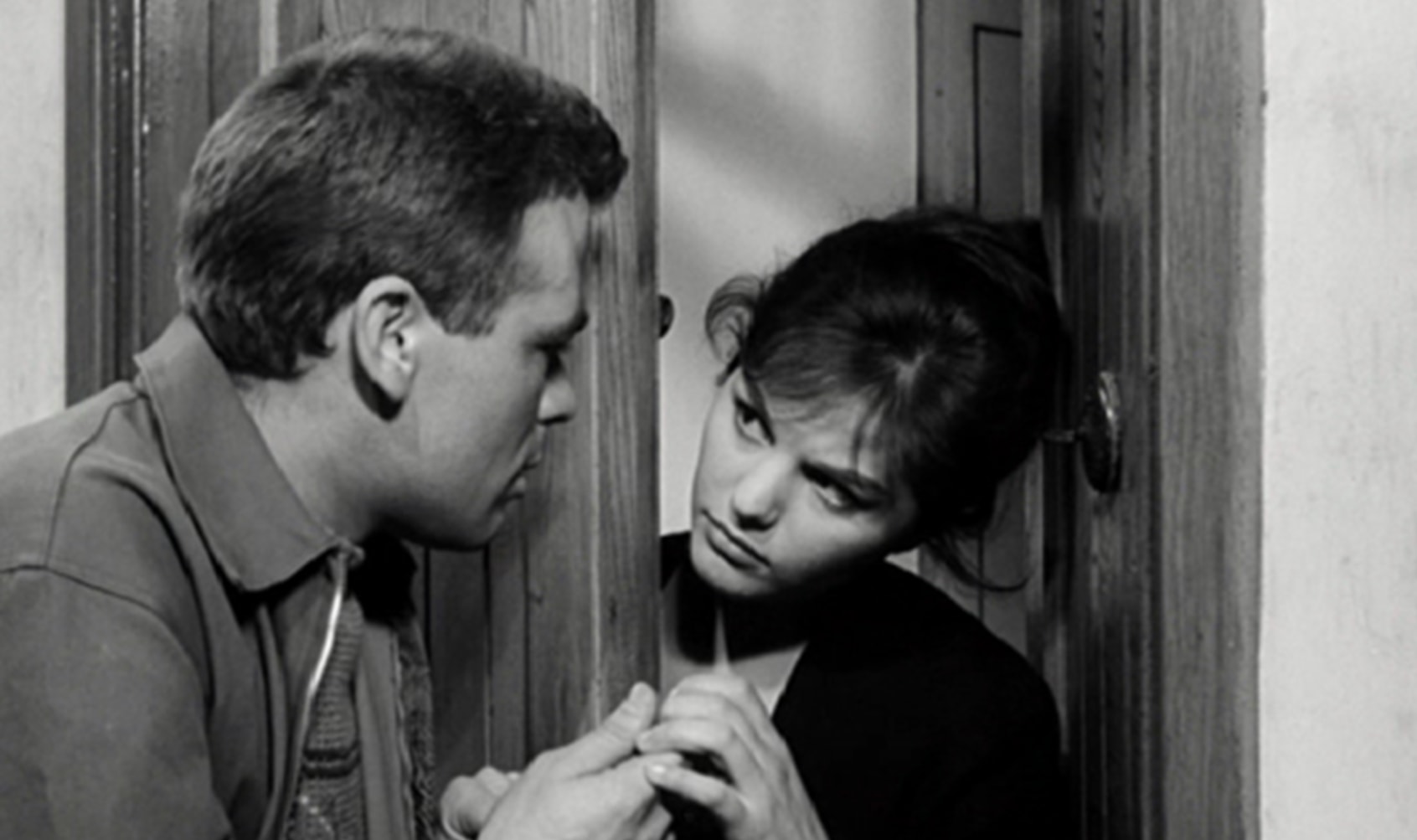Lesson
of comedy
Did you know? The desire to make people laugh at the movies is as old as cinema itself! Proof with 8.
1895
On December 28, 1895, the Lumière brothers organized the first paid public screening in the history of cinema. Of the dozen or so films presented, “L’Arroseur arrosé” was the most popular… Following this screening, the expression “arroseur arrosé” even entered common parlance. Even today, it refers to the person who commits an action that turns against him or her.
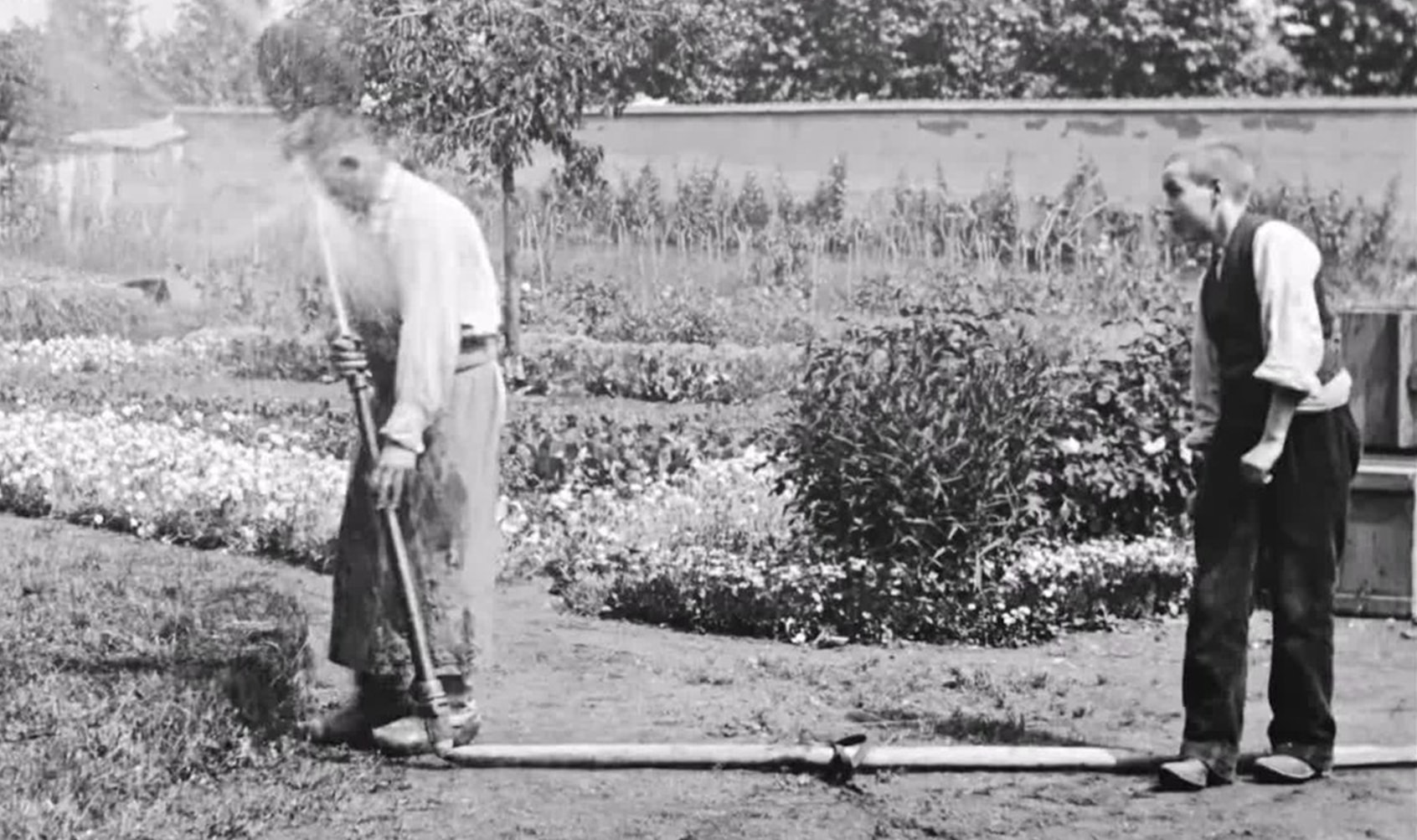
1920
From the earliest silent films, therefore, directors used humor and satire to entertain audiences. The French comedic tradition really began with Sacha Guitry and Fernandel; from the 30s onwards, films developed a sense of humor based on biting, fast-talking dialogue. Comedy evolves with audience tastes, and certain authors emerge to represent a branch of comedy in their own right.
The 1920s and 1930s were also the golden age of Hollywood comedy, with stars like Charlie Chaplin, Buster Keaton and Laurel and Hardy reigning supreme. Visual by default, their films use physical gags and zany situations to make audiences laugh.
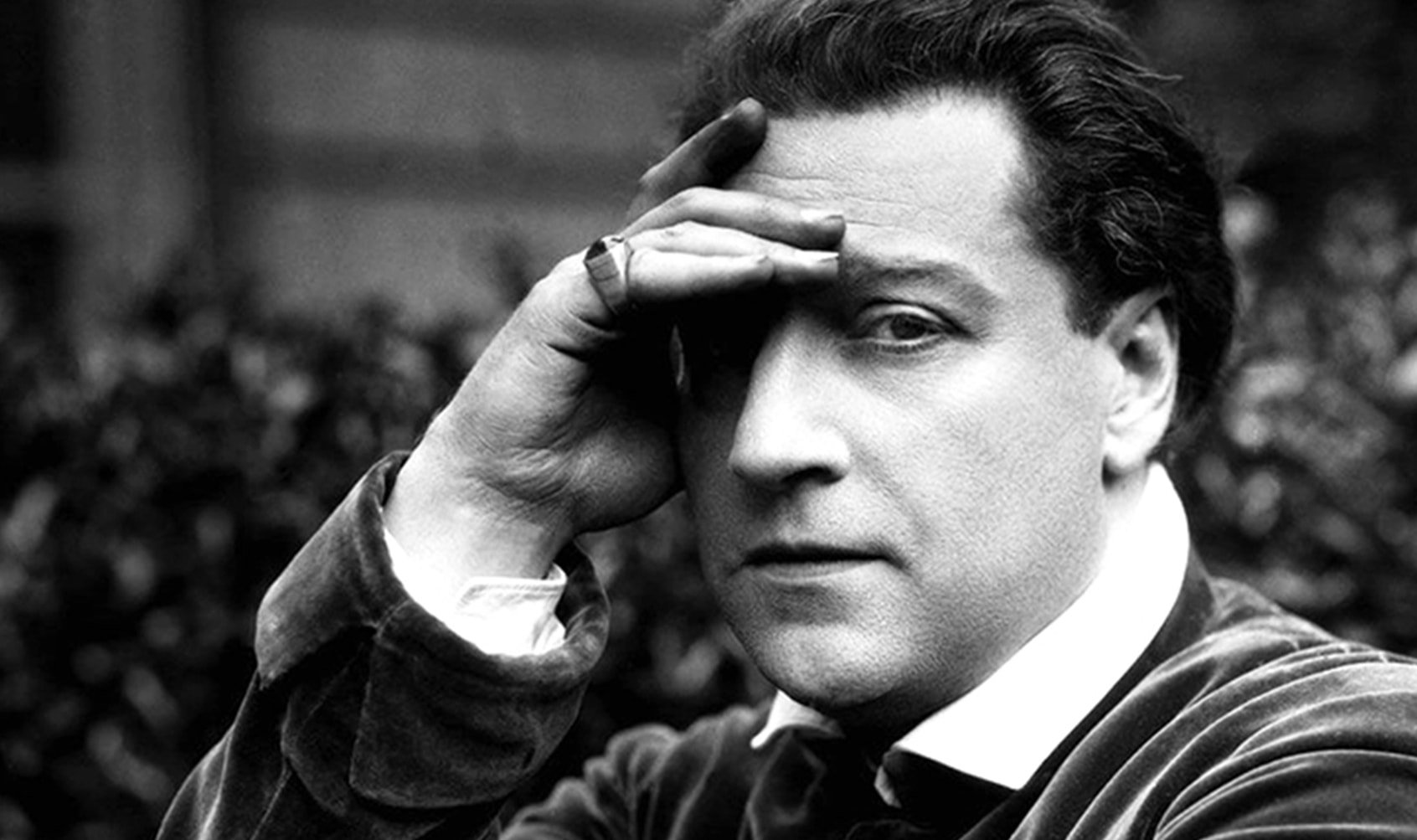
1940
Comedy continues to flourish, with the emergence of new talents such as Cary Grant, Katharine Hepburn and the Marx Brothers. More sophisticated, comedy films combine verbal humor with elaborate comic situations.
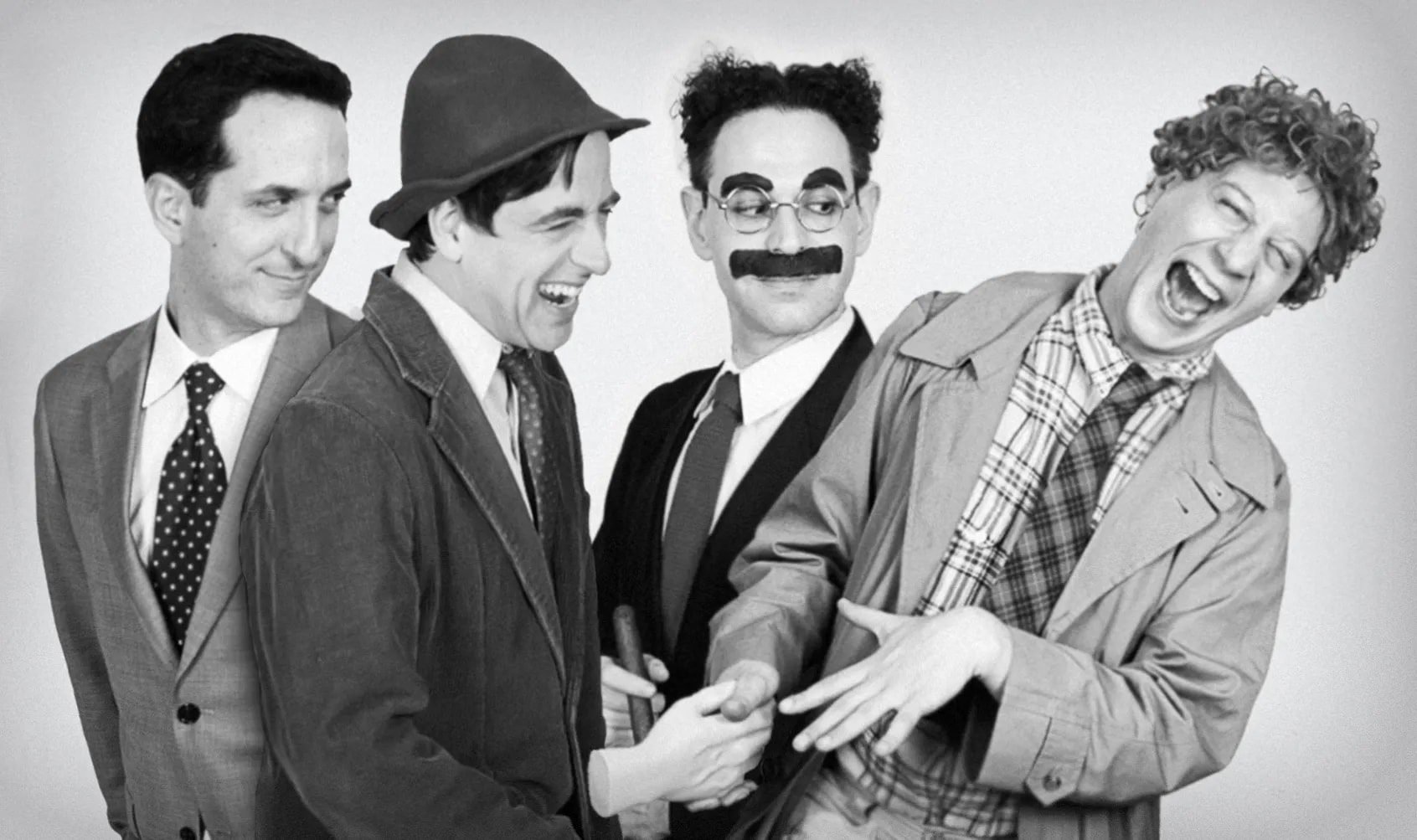
1950
Jacques Tati’s first feature film, “Jour de fête”, was a great success with the French public, winning the Grand Prix du cinéma français in 1950.
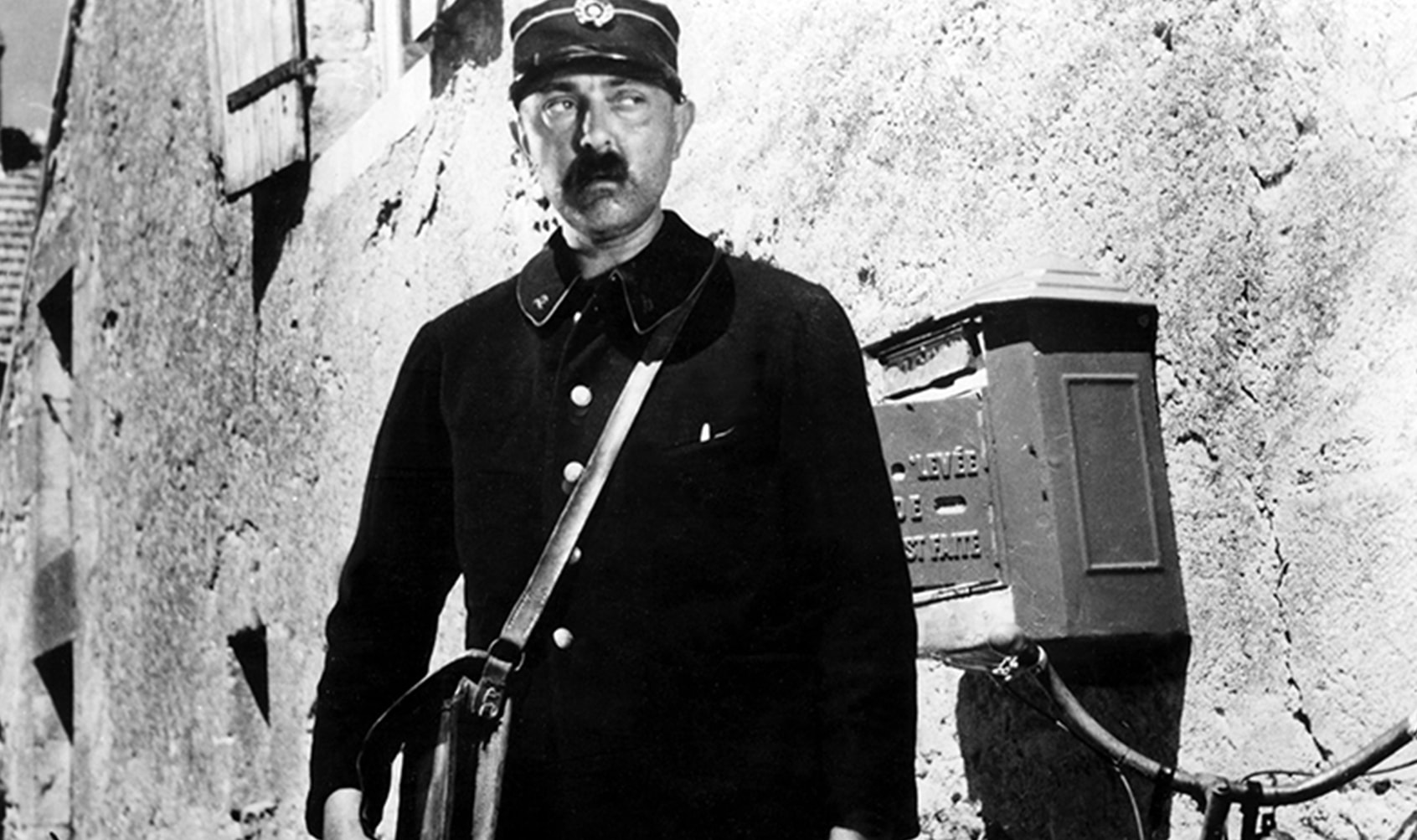
1960
Comedies were very family-oriented, supported by the first big stars of the genre: Fernandel again, but also Bourvil, de Funès or Galabru… Unrivalled actors, whose films are among the greatest classics of French cinema.
May ’68 changed all that: comedies became more committed, denouncing society’s failings, in the tradition of what the Americans Charlie Chaplin and the Marx Brothers had done much earlier. Films by Jean-Pierre Mocky, Pierre Richard, Michel Audiard… make comedy an outlet, where filmmakers let loose and the politically incorrect appear.
Comedy also saw the advent of more irreverent and provocative humor. Films such as “The Graduate”, “MASH” and “Monty Python and the Holy Grail” push the boundaries of what can be treated humorously in cinema.
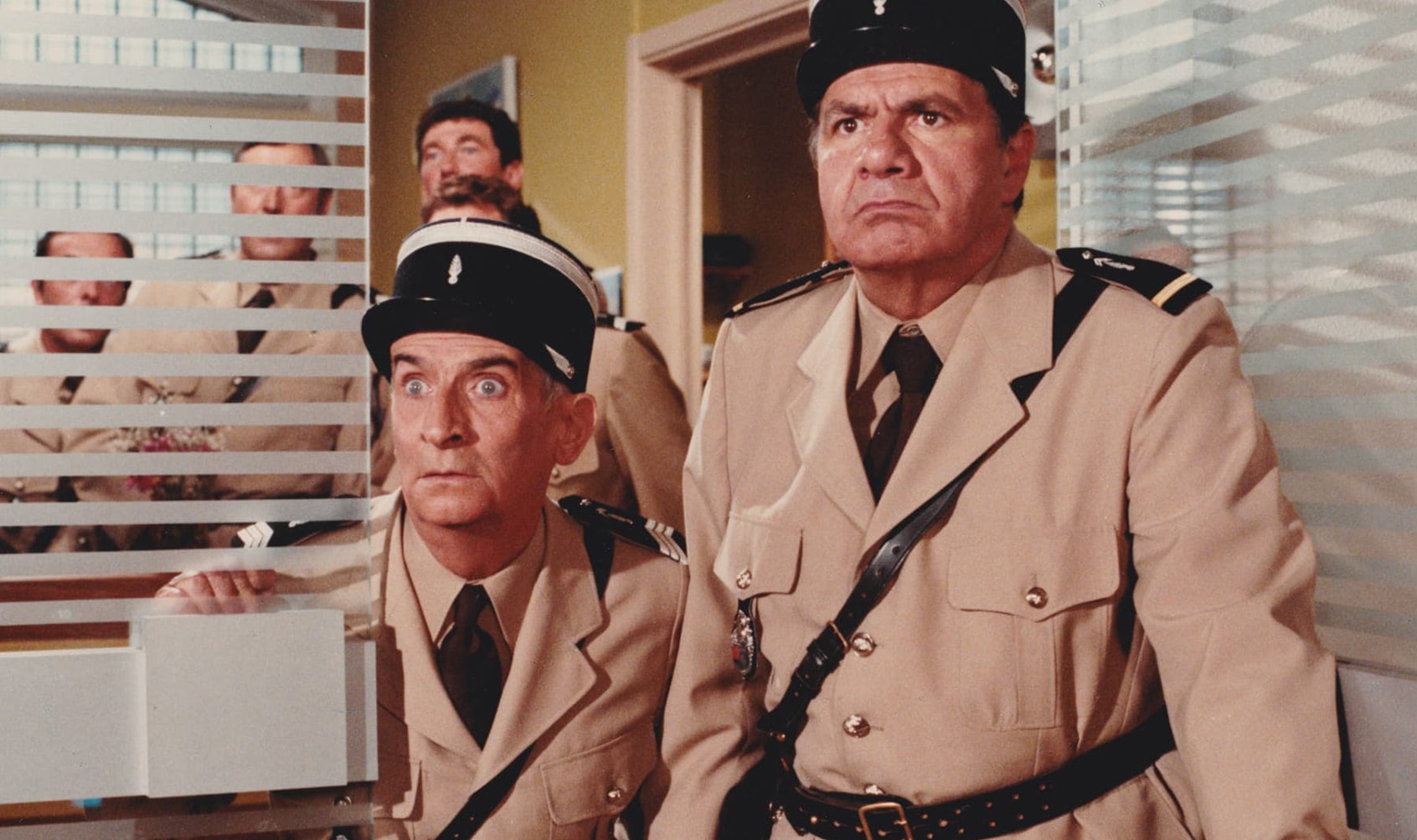
1980
The oil crisis and AIDS usher in a more cynical era. With the Splendid gang, humor is acid, sometimes black, from “Bronzés” to “Père Noël est une ordure”. Television became cinema’s main producer, which gradually brought films back to more politically correct subjects, such as “Trois hommes et couffin”, “Les Ripoux” and “L’inspecteur la bavure”, starring Coluche. Trois hommes et un couffin”, “Les Ripoux” and “L’inspecteur la bavure”, starring Coluche.
There are also various sub-genres, from romantic comedy to black comedy to action comedy. Directors like Woody Allen, Mel Brooks and the Farrelly brothers bring their own vision of comedy to the big screen.
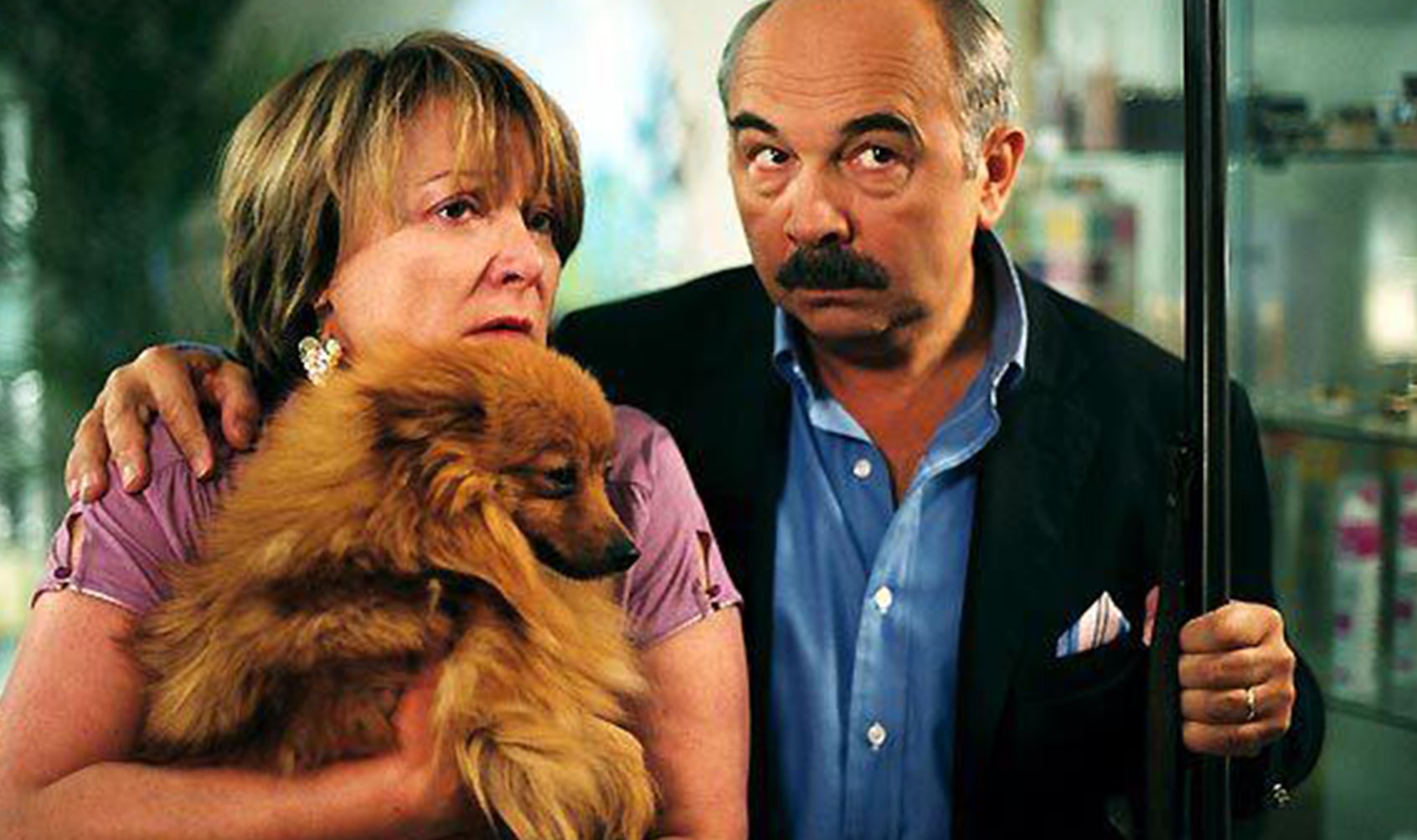
1990 – 2000
We discover “Les Visiteurs”, with Jean Réno and Christian Clavier, or “Le Dîner de cons” with Jacques Villeret. But it was not until the year 2000 that new voices were heard in French comedy: Michel Hazanavicius and Jean Dujardin reinvented the pastiche with “OSS 117”, Toledano and Nakache made several excellent films, culminating in the incomparable “Intouchables”, and Dany Boon enjoyed incredible success with “Bienvenue chez les Ch’tis”… At 21e century, comedy continued to evolve, becoming in turn choral, independent or focused on specific themes, such as fatherhood, politics or popular culture.
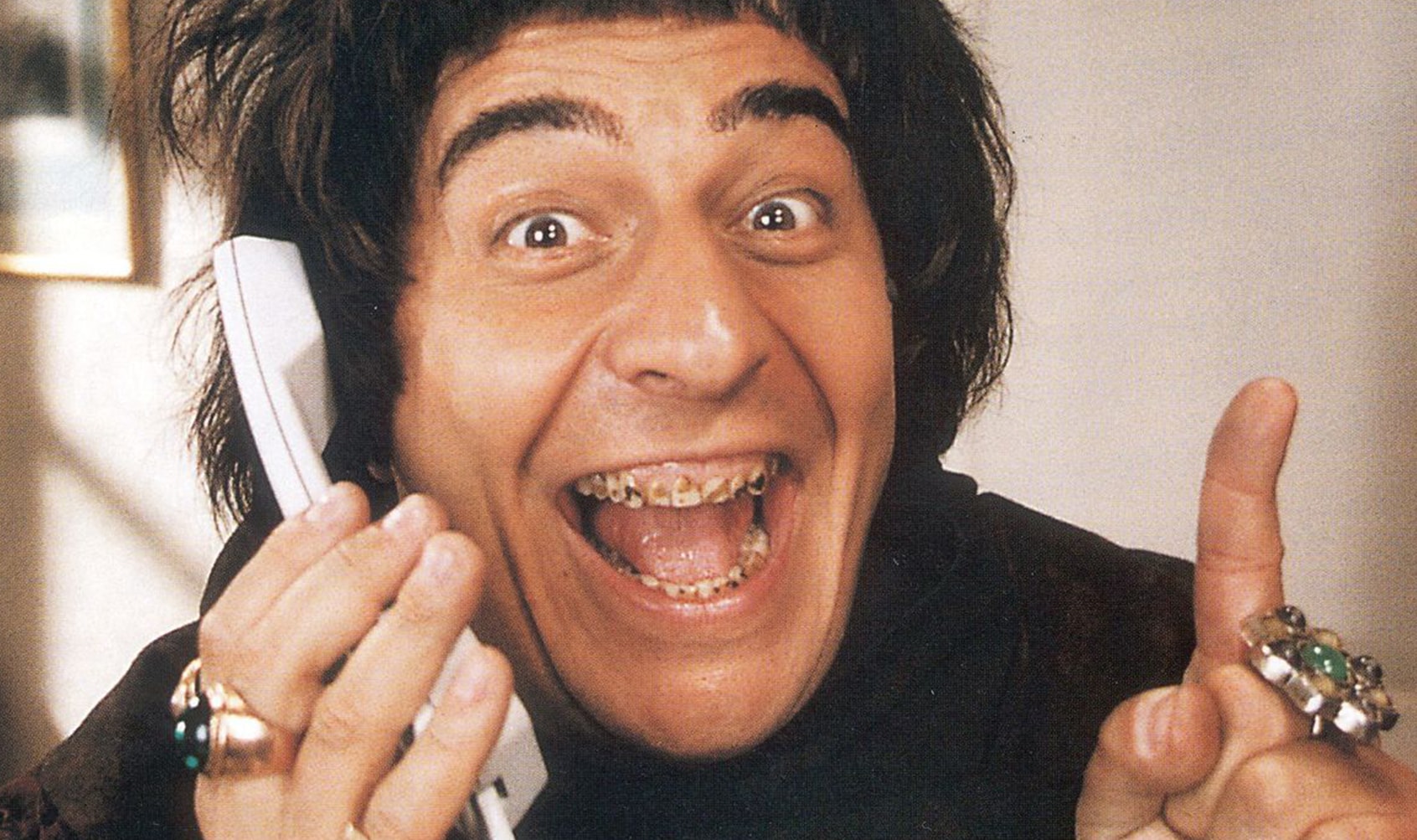
Today
There’s a long list of films that make us laugh so hard it hurts, proving that comedy reinvents itself over time, and isn’t about to stop!
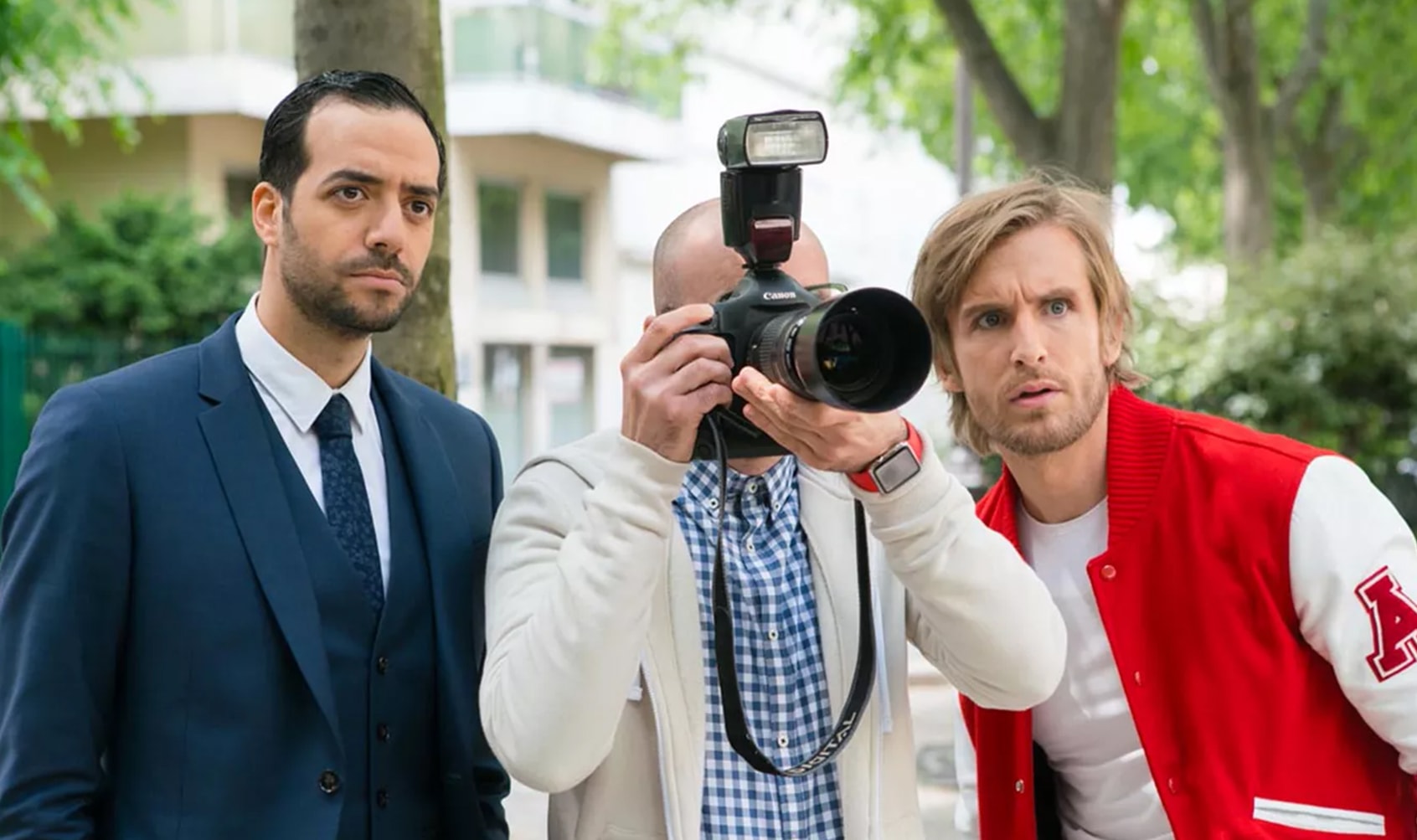
Italia mia
A genre from the golden years of Italian cinema, Italian comedy continues to influence comic-satirical cinema. Its golden age was embodied by directors such as Mario Monicelli, Dino Risi, Ettore Scola and actors like Vittorio Gassman, Nino Manfredi, Alberto Sordi, Ugo Tognazzi, Marcello Mastroianni, Catherine Spaak, Monica Vitti and Claudia Cardinale.
It is the only film genre that can be compared, for its richness, its fidelity to certain lines of force and its roots in a national tradition, to the great genres of American cinema, such as the western or the musical.
Mario Monicelli, director of the famous comedy filmI soliti ignoti (The Pigeon) wrote: “Regardless of what some critics think, with their reluctance to laugh and their lack of understanding of the role of satire and hilarity, Italian comedy has had a great impact on the history of Italian mores. I don’t think there has ever been a comic cinema in the world that has had such tenacity in combating social evils.”
